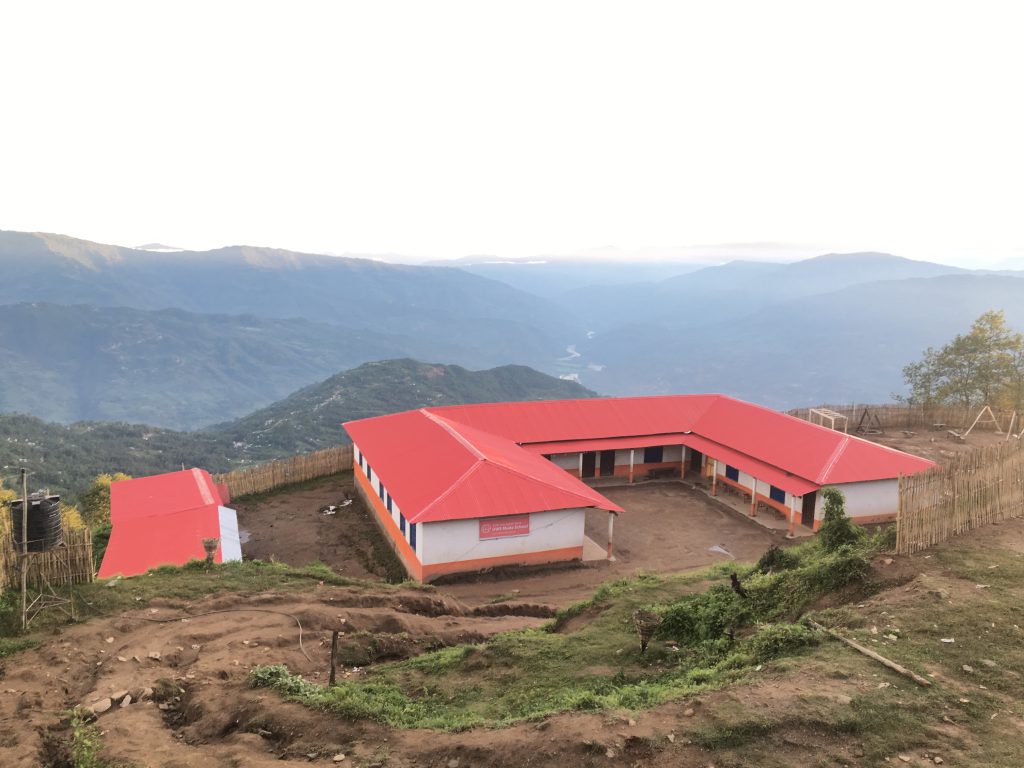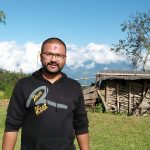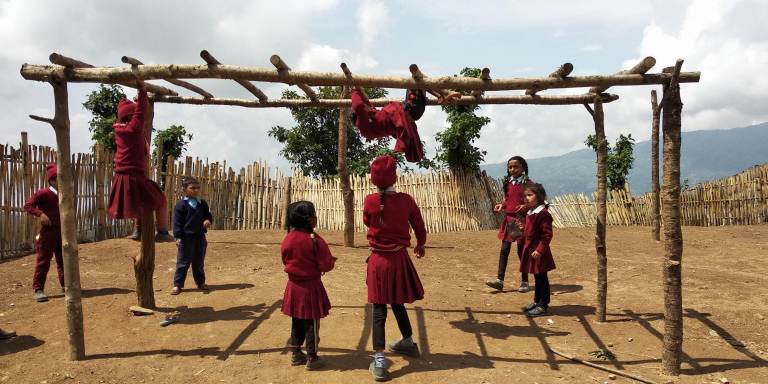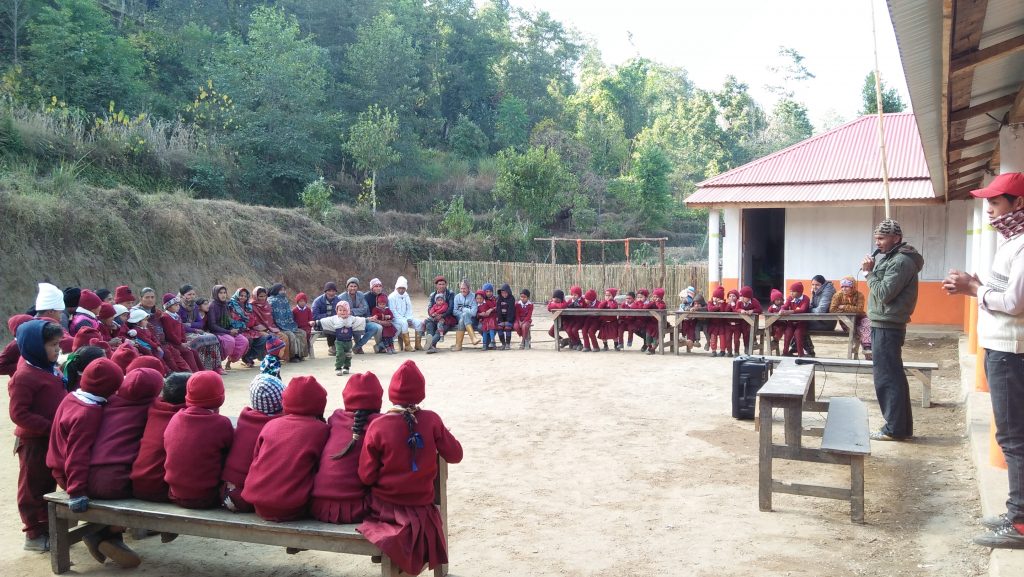United World School (UWS) Nepal has been working in Nepal to develop schools, teaching the unreached, supporting after crisis and working alongside local communities. It has been working in Gulmi and Sankhuwasabha in 24 schools reaching 2400 students since 2016.
With the involvement of youth fellows, they aim to improve the quality of teaching in schools along with providing fellows to make a real impact in rural communities. In conversation with Glocal Khabar, the team of educators of UWS; Ashok Kumar Ghimire, Education Coordinator, Jitendra Upadhaya, Education officer, Ashish Adhikari, Education officer, Avinash Jha, Education Director share about their experience.
What is UWS Nepal?
Avinash Jha: UWS Nepal is a charity that was initiated by Surya Karki in Nepal. School in rural and community are not getting more support from the government, infrastructures are less developed. The community is not aware of how to make the future of children and child does not have a dream. Either being driver or going gulf countries. The plan was to make the good infrastructure of the school, construction Director-Manjeet Raj Pandey. We make 5 years agreement with the community where we give services in education, resources and everything that a child needs for their education. After 5 years, we will go in exit mode where community and government take over for sustainability and after 10- years we handover to the community completely. We kept a community teacher because the existing teacher was not motivated and trained.

What motivated you to join UWS Nepal?
Ashok Kumar Ghimire: I used to work as the secondary teacher in community schools. I have achieved certain things in the past 10 years. I felt that I was working just in one area of Nuwakot but joining UWS Nepal, I will be able to contribute a whole lot of community and not just one with my skills.
Jitendra Upadhaya: I have studied in a government school in a remote area of Bhairahawa and the situation back then was worse. I was sponsored to study during my school days from one foreigner who visited my school. I always had the gut feeling to give back to people who faced difficulty to study in remote areas. I knew this opportunity of UWS Nepal is my purpose to support rural children for education.
Ashish Adhikari: I completed my masters and joined to volunteer in 2011 in this field after I quit my banking job. It’s been 8 years in this field and now I am in UWS Nepal. It’s a really happy life in villages as a teacher. 10 years after this, I can feel the excitement that our intervention in school has made social changes.
Avinash Jha: I studied in a government school during my childhood and I was definitely not happy. The aggression to make a change made to work in UWS Nepal and the team. I also had anger with the teacher of government. However, I think there was no proper management and training. I am leading the education part of the project. 24 schools, 50 communities. We want to make changes in the field of rural education in 10 years down the line.



Working with the rural community is itself challenging. The mindset of a child is so much influenced by family and society. Educating a child can make a change or educating the community can make changes?
Ashish: You have to make sure that you convince why you are trying to make the change.
Jitendra: It is a mixed formation of SMC to know the need of students and the community. The expectation of each other will be discussed differently.
Ashok: The parents expect their children to speak English the very next day they joined UWS Nepal. We believe in collaboration to school, students and community to bring educational reform in the areas. If we introduce any new book in school, we sit for different meetings. We meet with the teacher to explain to them what level of English is required for students to learn and how to teach them. We talk with parents of the students to let them know about what environment is needed for students to learn at home.

The introduction of youth fellowship played a big impact on your journey. Can you share your experiences mobilizing those fellows?
Avinash: Community teachers were not skilled and then we initiated a fellowship program where the urban youth go to rural areas to teach, give training for two years since 2017. When we opened a fellowship application in the first year, we received 104 applications. After 6 rounds of interview of the shortlisted applicant, we trained and orient them for a month as the areas were too rural and took 26 hours ride and have to walk 6 hours to reach school. These fellows are paid and act as vital mobilizer in the school. Now, schools demand fellows instead of a teacher. The school has the tendency that they will get support from fellows if improve their school performance. We had 5 fellows last years and we have seen changes in school where we have mobilized fellows.
How far have parents understood and supported the initiation of UWS in communities?
Ashish: The parents of communities where our school are located does not care much about the education of children. The absent rate of students is equally high due to family problems. We conduct counseling with teachers and parents about the need for students related to hygiene, stationery, etc. The tendency to go school is the part-time culture in rural areas. Parents expect more to improve their child growth by sending them schools only as the school’s responsibility. For the changing perspectives, parents are oriented to stay by the side of children, interact with them while doing homework.
Ashok: In some areas, some parents take good care of students and give time for their children.

What are the major challenges in training teachers?
Jitendra: At the beginning, your approach has to be correct. You need to be updated about the current scenario of school. We have the mindset with bringing changes and what needs to be changed rather than we have to train. The training culture in rural areas is to get incentives. However, our training is not incentive based.
What is your message to youths
UWS Team: If you are planning to do something in Nepal in the education field, success in life does not depend totally on the money. You need to be prepared to initiate anything in Nepal and there are many opportunities in Nepal.







